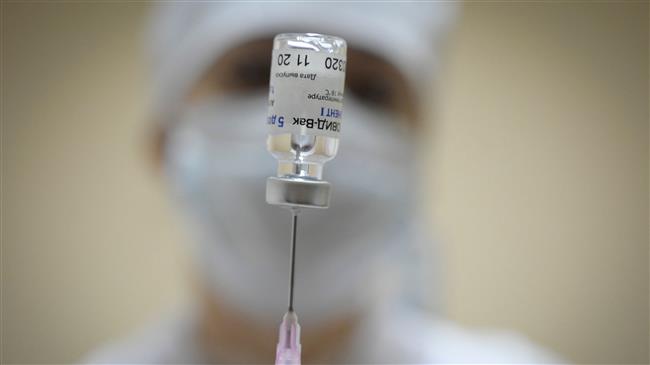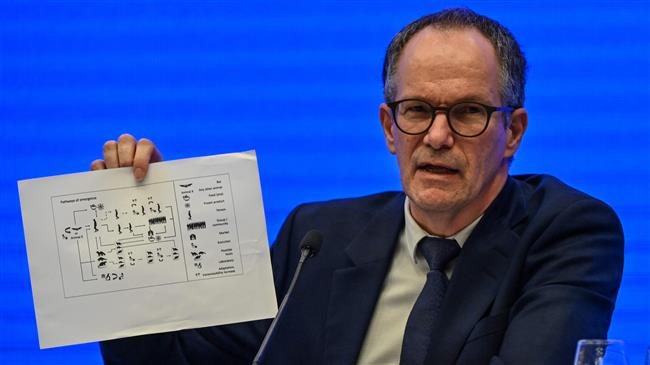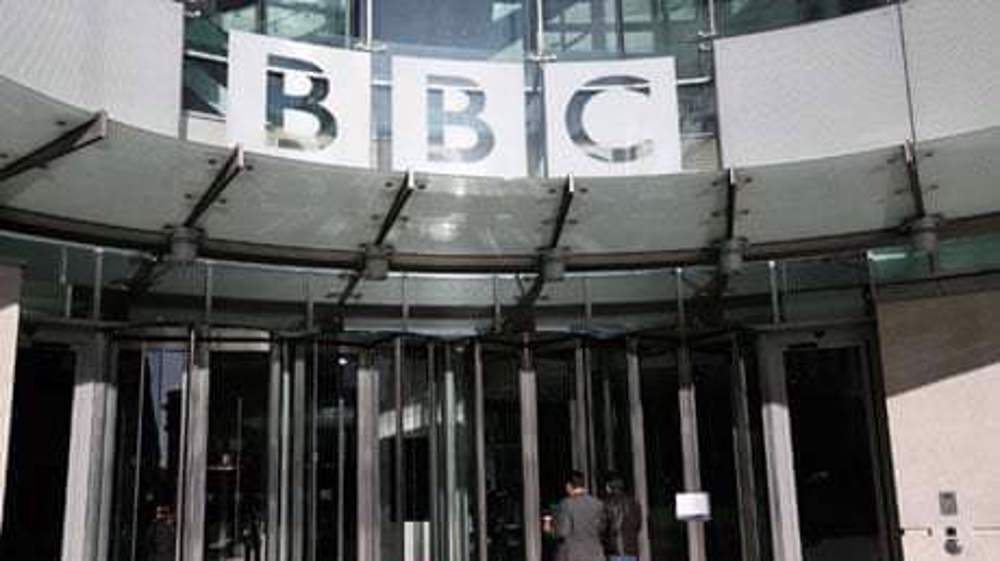France slams EU member states for showing interest in Russian, Chinese vaccines
A French cabinet minister has censured the European Union (EU) member states for showing interest in the Russian and Chinese COVID-19 vaccines instead of the ones developed by the US and the UK.
Speaking to French radio RTL on Friday, France’s European Affairs Minister Clement Beaune called on fellow member states not to use Russia’s Sputnik V and China’s Sinopharm vaccines unless they are approved by the bloc’s medicines regulator, warning of a risk to the bloc’s unity and public health.
“If they were to choose the Chinese and/or Russian vaccine, I think it would be quite serious,” Beaune said, adding, “It would pose a problem in terms of our solidarity, and it would pose a health risk problem, because the Russian vaccine is not yet authorized in Europe.”
Europe’s medicines regulator (EMA) announced a day earlier that it had started a rolling review of the Sputnik V vaccine, however, EU officials insisted that the approval by the EMA would not necessarily mean that the Russian jab, with an efficacy rate of over 91 percent, would be included in the bloc’s portfolio.
Beaune’s comments come as some member states in central Europe have already bought or are considering buying Russian or Chinese shots to inoculate their populations.
Hungary has started inoculating people with Sinopharm and Sputnik V, and Poland has discussed buying the Chinese vaccine. Slovakia and the Czech Republic are also assessing Russia’s Sputnik for approval.
The Italian region of Lazio said it would seek one million doses of Sputnik V if approved by the EMA, while the government of the tiny independent enclave of San Marino said it had started using the Russian vaccine this week.
The 27-member bloc has so far approved vaccines from Pfizer/BioNTech, Moderna and AstraZeneca/Oxford, while ongoing reviews for CureVac and Novavax’s candidates are underway.
Responding to the Beaune’s comments, a European Commission spokesman said the member states are allowed to acquire vaccines independently if jabs are not part of the bloc’s centralized procurement strategy.
Eric Mamer said the member countries are only banned from parallel talks with vaccine makers from a pan-European portfolio but they have the full right from a legal point of view to purchase vaccines from other suppliers.
‘Russia helping poorer nations to access vaccine’
Amid shortages of EU-approved American and British vaccines against the coronavirus, Russia has struck deals to supply its vaccine to over 40 countries, many of which have little ability to access Western shots.
The Russian Direct Investment Fund (RDIF), the body that backs the Sputnik V vaccine and handles its marketing, listed the nations in a press release on Wednesday and said the countries were in Latin America, Eastern Europe, Asia, and Africa.
Kirill Dmitriev, the CEO of the RDIF, said in an interview with Business Insider last month that he had little interest in seeing the Russian vaccine used in the US and only a moderate interest in sending it to Europe, stressing, "Our priority is the Middle East, Latin America, Asia, Africa, those countries who are very eager to procure Sputnik.”
Lawrence Gostin, a professor of medicine at Georgetown University who is director of the WHO Collaborating Center on National and Global Health Law, censured the distribution of EU-approved vaccines as unfair and said the measure has created a vacuum in poorer countries.
"Russia is selling to desperate people," Gostin said. "Governments realize that people are dying, that [COVID-19] is absolutely shattering their economies, and that they're losing public trust."
The health expert hailed Russian vaccine making technology and said geopolitical advantage was not the only driver of Russia's strategy as the West was “robbing lower-income countries.”
"This is kind of a way of demonstrating that Russia's technology prowess is the equal to that of the West," Gostin told Insider. "It's no accident that it was called Sputnik, because it's really is very reminiscent of the race to the moon with the United States.”
"The truth is that you've got Russia playing politics with vaccines, trying to get a geostrategic advantage and bolstering their image abroad. Then you've got Europe, the US, the UK, and Canada that are hoarding vaccines and robbing lower-income countries. I don't know that leaders of Europe and the US can look themselves in the mirror and feel any kind of ethical superiority."
China, Russia playing 'greater-than-expected' roles
Meanwhile, a recent study supported by the Paris-based International Chamber of Commerce showed that the inequity in vaccine distribution would cause people in wealthier countries to be inoculated before those in poorer nations and the measure could lead to further pressure on the global economy.
"Should countries continue to pursue an uncoordinated approach to vaccine distribution, the world risks global GDP losses in 2021 alone of as much as US $9.2 trillion," the study said.
The research study highlighted the world health officials’ criticism of the nationalist strategies of the US and Europe in vaccine distribution, and said Russia and China were stepping up to fill the void where vaccines remain scarce.
It added that India was also vying for global influence by distributing vaccines to low- and middle-income countries.
"I think we had not expected ... to see such a massive reliance on these countries to manage that combination of political and public health imperative," said Bruce Aylward, senior advisor to WHO Director General Dr. Tedros Adhanom Ghebreyesus.
"Not that China and Russia and India [would] play a role, but at this scale. I think that's a little bit of an interesting development."
Peter Hotez, a top vaccine expert at Baylor College of Medicine in Houston, also praised the role of Russia and China in the global response to the epidemiological crisis.
"The reality is Russia and China are here, they are big producers, and if we could get them into the fold and get them to cooperate ... and improve their regulatory structure, that could be game-changing," Hotez added.
Occupation of Syria’s highest peak Mount Hermon part of ‘Greater Israel’ project
Iran: Syrian people will decide their future without foreign interference
IRGC says Iran’s power exceeds borders, warns enemies to adjust themselves
Dozens detained, several wounded in Israeli raids in West Bank
‘Ethnic cleansing’: Hamas blasts Israeli attacks on Gaza hospital amid intl. silence
Saudi delegation meets HTS leader at presidential palace in Damascus
Relentless Israeli ceasefire violations justify need for self-defense: Lebanese MP
Tel Aviv tells Damascus Israeli forces will remain in occupied territory: Report



















 This makes it easy to access the Press TV website
This makes it easy to access the Press TV website